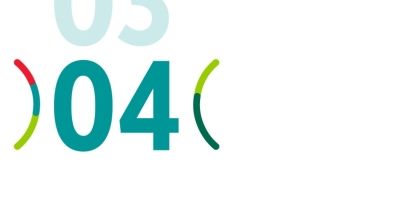-
View article
 #Financial publications
#Financial publicationsInterview with Olivier Gavalda - Results that reflect teams’ commitment to serving our customers and society
2026/02/04 -
View article
 #Financial publications
#Financial publicationsInterview with Clotilde L’Angevin - Significant full-year earnings and a transitional fourth quarter marked by the launch of the new MTP
2026/02/04
Financial Security
Financial Security system
The Crédit Agricole Group attaches considerable importance to preventing money laundering, combating terrorism financing and complying with international sanctions (asset freezing and embargoes).
The Group Compliance Department, and more specifically its Financial Security unit, is responsible across the Group for:
- implementing measures aimed at preventing money laundering and terrorism financing;
- ensuring compliance with international sanctions.
By updating its procedures and tools, the Crédit Agricole Group has taken into account the new requirements pertaining to the transposition into national law of the EU Directive of 20 May 2015 on the prevention of the use of the financial system for the purposes of money laundering or terrorist financing (the “4th AML Directive”).
We have also enhanced our system to improve the quality of the know-your-customer (KYC) data that we collect, both at the beginning of and throughout the business relationship (ongoing supervision), and extend the supervisory measures already in place. Customer identification checks are now a first filter at the beginning of any relationship. This relies on knowledge of our customers and beneficial owners, supported by research conducted using databases or special lists. We carry out suitable and risk-appropriate oversight throughout the relationship. Group employees are assisted in this by software for profiling customers and detecting unusual transactions.
Combating terrorism financing and complying with international sanctions means we need to continually cross-check customer files against sanction lists and international transaction monitoring.
Based on risk assessment and regulatory changes, we are continually strengthening our overall AML/CFT and international sanction compliance system.
Wolfsberg 2025
Below is a link to the Wolfsberg questionnaire pertaining to the system that has been implemented at the Crédit Agricole Group:
U.S. Patriot Act 2024
The Crédit Agricole Group complies with the provisions of the US Treasury’s Patriot Act, which applies to all non-US banks that have a correspondent account with a US financial institution.
A copy of this certification is available below. This document can be used by any financial institution.
Transmission of tax data
FATCA: a regulation impacting Crédit Agricole SA Group and its customers
Context:
The Foreign Account Tax Compliance Act (FATCA) is an American law whose aim is to combat tax evasion by US citizens and tax residents. The Internal Revenue Services (IRS) has set up a framework to collect annually from foreign financial institutions information on assets and income held by US taxpayers outside the United States.
Crédit Agricole S.A. has been registered on the IRS portal and is embedded in the lists released since June 2, 2014. The GIIN of Crédit Agricole S.A. is CEQ4EV.00000.LE.250 and that of its London branch: CEQ4EV.00000.BR.826.
As of July 1, 2014, financial institutions, banks, life insurance companies, asset management companies, custodian companies, etc., were required to set up procedures in order to identify American customers (“US Persons” within the meaning of the FATCA regulation). Since 2015, financial institutions have provided the US tax administration, directly or through their local administration, with certain information such as the identity and identification number of their US Persons clients, the balance of their accounts as at December 31 of the previous year, the amount of income and the total amount of disposals of financial assets.
In order to make the FATCA law easier to apply, Intergovernmental Agreements have been negotiated by the United States with a large number of countries, including France, which have had to implement the FATCA law’s reporting obligations into their national legislation.
External corporate communication on the automatic exchange of information
As of July 2014, in order to combat tax evasion, the OECD issued a new standard for the automatic exchange of tax information between countries.
In accordance with this standard, adopted by more than 100 countries and transposed by the European Union, the Crédit Agricole Group financial institutions therefore identify, as of 1 January 2016, the account holders residing for tax purposes in countries with which an exchange agreement has been concluded. The information relating to these clients is annually sent to their local tax authorities, which forwards it to the tax authorities of the clients’ countries of residence.
The information disclosed covers in particular the identity of the holder, account balances, income received and gross proceeds from the disposal of financial assets.

